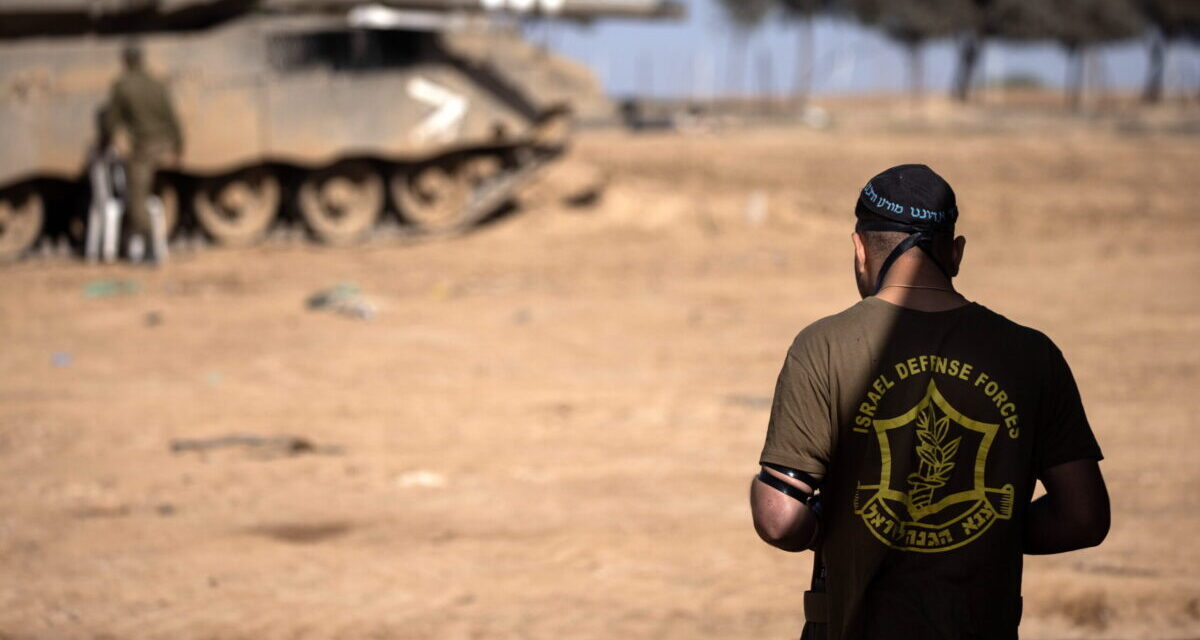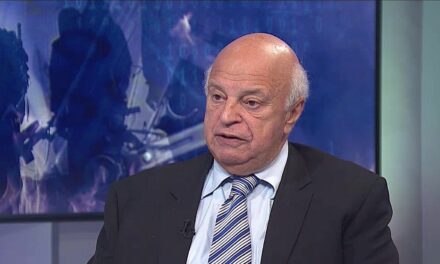We have selected a number of reasons.
The news that Jordanian fighter jets rushed to Israel's defense when Iran launched missile attacks against the Jewish state may have come as a surprise to many. Although Israel and Jordan have maintained diplomatic relations for 30 years, their nexus has been in crisis since the outbreak of the Gaza war.
Jordan was not the only Arab country to help defend Israel that night. The Royal Saudi Air Force has also shot down Iranian missiles crossing its airspace, and Saudi Arabia and the United Arab Emirates are reported to have shared critical intelligence with the Jewish state.
There may be several reasons why the moderate Arab powers assumed a role in defense. One is that if the Iranian operation had been a significant success, a harsh response from Israel could have been expected, raising the risk of a regional war.
- writes Foreign Policy .
Another reason is that many Arab countries are no less concerned than Israel about Iran's interference in Iraq, Syria, Lebanon and Yemen - and the instability it causes.
It is also an important moment that Israel has become a key economic partner for the moderate Arab powers. This explains why, after the outbreak of the Gaza war, Jordan, Saudi Arabia and the United Arab Emirates took almost no concrete action against Israel. When Turkey announced a broad ban on exports to Israel on April 9, not a single Arab country followed suit.
Of these countries, Jordan is most dependent on Israel – not for cross-border trade or investment, but for basic water and energy supplies.
Water and energy
Jordan is one of the most water-poor countries in the world, with only 950 million cubic meters of water available annually to meet the demand of about 1.4 billion cubic meters.
According to the 1994 peace treaty, Jordan could buy 50 million cubic meters of water from Israel every year. That number has since doubled as Jordan's population has grown and Israel has developed such a large desalination capacity that it has enough fresh water. Dependence is likely to increase if a deal is reached to swap more Israeli water for solar power, with Amman importing an additional 200 million cubic meters.
In addition, the kingdom has no domestic energy sources, energy production and the chemical industry rely on natural gas imports from Israel. More than 70 percent of Jordan's electricity generation comes from gas, almost all of which comes from Israel's Leviathan field.
Egypt needs Israeli gas because domestic reserves are depleting faster than new sources are being found, and the huge Zohr field is experiencing ongoing technical problems. When Israel briefly halted exports after the outbreak of the Gaza war, Egypt had to double its rolling blackouts to two hours a day and import liquefied natural gas (LNG).
Egypt's demand for Israeli gas exceeds domestic needs. Since its own reserves are so scarce that it can no longer export its own gas as liquefied natural gas to Europe, it re-exports Israeli gas instead. Not only has this brought much-needed hard currency to Egypt, but it also ensures that it acts as the hub of an emerging gas hub in the eastern Mediterranean that includes Israel – and one day, possibly Cyprus.
Trade and investments
The UAE's economic interests in maintaining relations with Israel are quite different: trade, investments, strengthening the Emirates' role as a global logistics hub, leveraging Israel's technology to build its own industry, and partnering against climate change, which threatens the region. Since the 2020 Abraham Accords, the UAE has become a major buyer of Israeli arms. Israeli arms exports to countries that signed the Abraham Accords increased from zero to $2.9 million by 2022.
In Egypt and Saudi Arabia, a survey a year ago showed that about 38 percent of respondents accepted the idea of doing business with Israel. Therefore, it is not surprising that Arab countries' relations with Israel are limited to the elite. The mundane ways of doing business, when executives attend industry conferences and trade shows or make calls, don't exist. Tourism is one-way - Israelis visit Arab countries, but not the other way around.
Although Emirati leaders say they remain committed to an economic and political partnership with Israel, relations have cooled noticeably since the start of the Gaza war.
Last month, Abu Dhabi's national oil company ADNOC suspended a deal to jointly buy a 50 percent stake in Israeli energy company NewMed with BP. The decision was announced with reference to the "external environment".
Fortunately for the future of bilateral relations, the war in Gaza appears to be winding down. It is far from certain that it will not flare up again with an attack on Rafah, and that the low-intensity conflict between Hezbollah will not escalate into full-scale war. However, for now, due to the realpolitik and economic interests of the Arab leaders, the relations have withstood the test.
Featured image: An Israeli soldier prays at an assembly point in southern Israel, near the border with the Gaza Strip, on November 24, 2023, after a four-day ceasefire between Israel and the Palestinian Islamist group Hamas, which controls the Gaza Strip, came into effect. Hamas militants launched an attack on Israel on October 7, and the Israeli military responded by carrying out air and ground operations in the Gaza Strip. MTI/EPA/Christophe Petit Tesson












